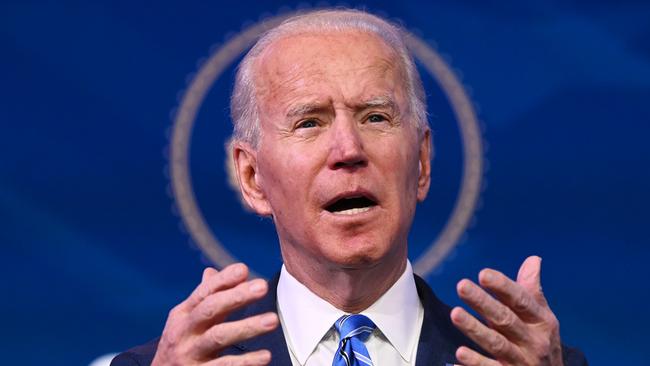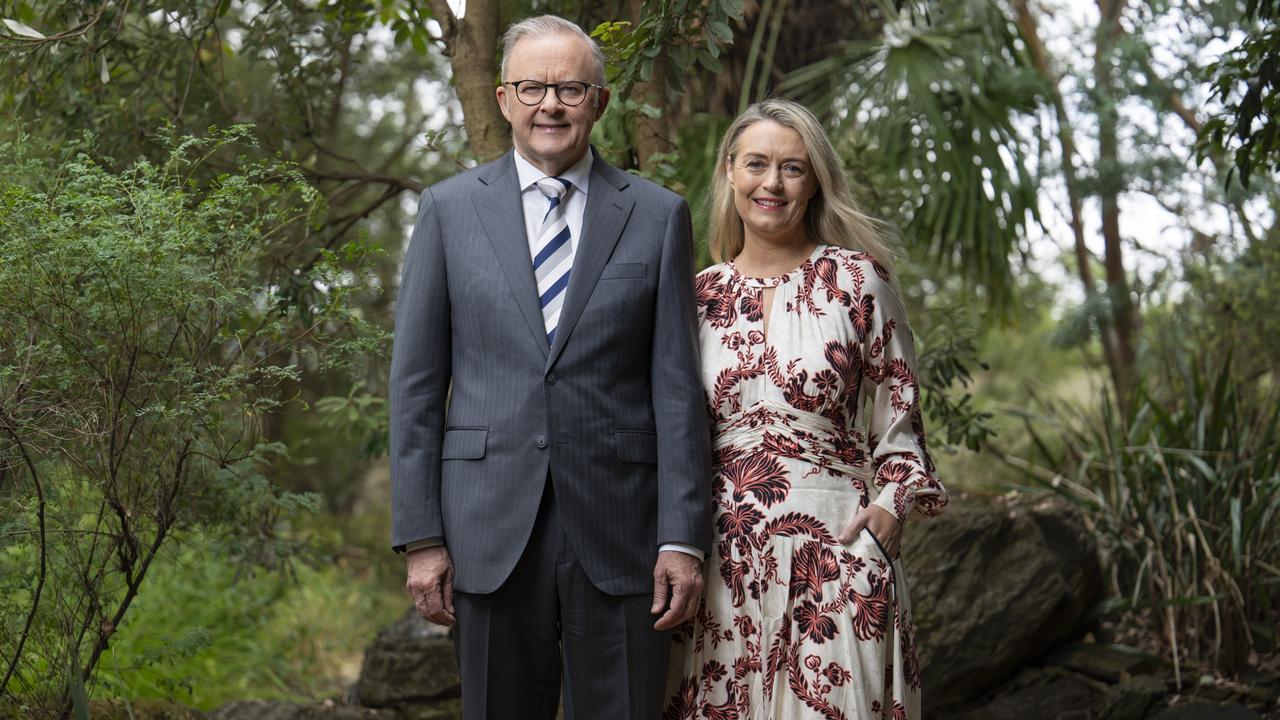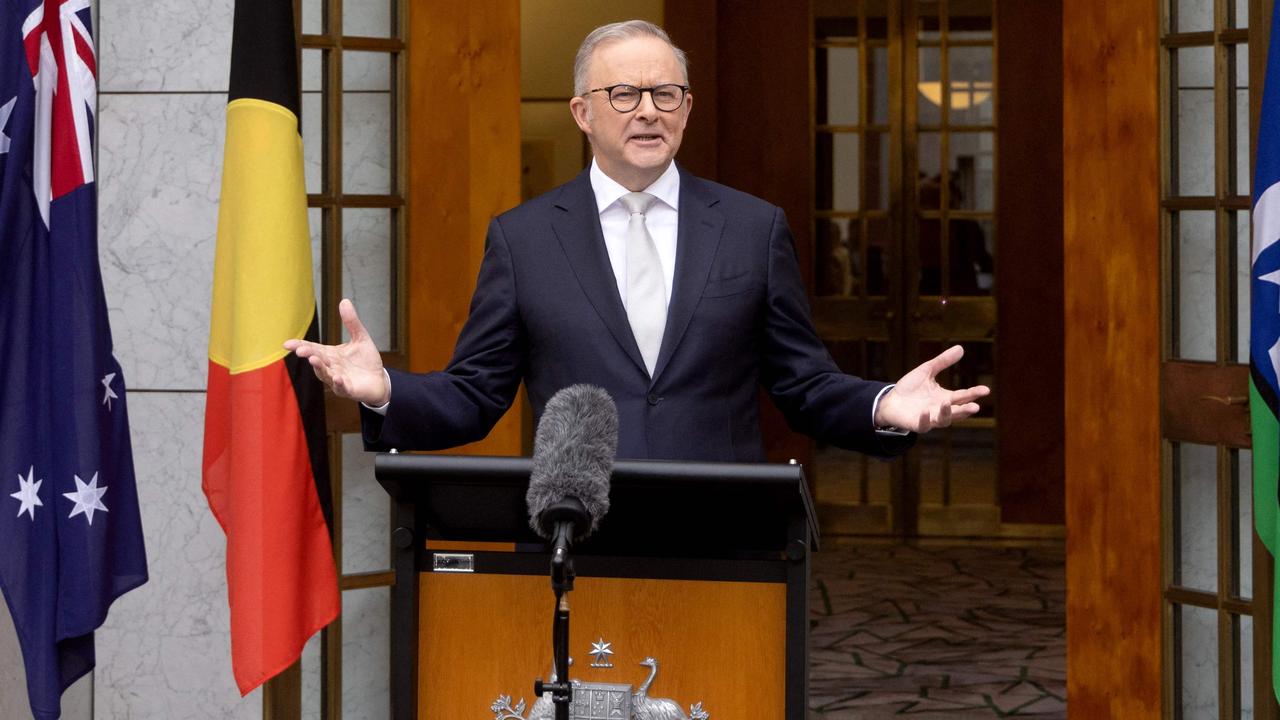
This is a good thought experiment for us as Australians, because a great deal hangs on the condition and viability of the American republic. Its strength and its international role have underwritten the security and growing prosperity of the global order since 1945. If it falters or withdraws into its shell, the implications for us are serious. We got a foretaste of that in 2020, as the Chinese Communist Party attempted to make us bow to its will.
To paraphrase president Kennedy, however, ask yourself not what Joe Biden can do for us but what he can do for his country — and its global role. Depending on your worldview and political leanings, you are likely to have widely differing opinions about this — from the passionately left-wing to the defensively conservative. But whatever your initial notions, the thought experiment requires that you put yourself in his position and think in responsible ways.
Suppose you’re somewhere on the green left of the political spectrum. You might respond: push through sweeping gun law reform, abolish Republican and racist gerrymandering, confer statehood on Washington DC and Puerto Rico, overhaul campaign finance, launch a Green New Deal, undertake police reform across the board, re-enter the Paris Agreement on climate and then some, re-establish good relations with allies and restore calm in relations with China; introduce steeply progressive income tax, strengthen Obamacare — oh and, of course, rejoin the WHO, quash the pandemic in the US itself, set up a new national and then international early warning system for disease control and subsidise vaccination for the poorer countries of the world. How’s that, for a start?
Now, quite apart from the howls of anger or derision that such an agenda might elicit from the conservative or libertarian end of the political spectrum (to say nothing of the lunar, racist right), your first check has to be a set of elementary political and economic questions:
1. How much of this could possibly be accomplished in fiscal or practical terms?
2. What should be the highest priorities?
3. What should the political strategy be to ensure this doesn’t lead to electoral disaster in the midterms in two years, and loss of the current Democratic balance of power in both the House and (just barely) the Senate?
Never mind, for the moment, your opinion about what Biden will do. I’m asking, what would you try to do if you were in Biden’s shoes and how would you go about it? It’s a thought experiment.
Of course, it now seems likely Donald Trump will be impeached — after the inauguration, not before — and that could distract many people from your legislative agenda. You might ask yourself whether, on reflection, impeachment is such a good idea in all the circumstances. Might it not have been better, given the precipitous fall in Trump’s popularity ratings, to leave him to the courts on various criminal charges and hope he would sink below the political horizon? Instead, with Nancy Pelosi singing a rendition of Carly Simon’s song, Vengeance (“It’s vengeance, she said, that’s the law!” ) we seem set for a bitter political trial.
That aside, there are opportunities. It’s your turn, at last: you’re president, at 78. This is your one chance at the job. You’ll probably be a one-term president, because you’ll be too old to stand again in 2024. You have a majority in the House and have been gifted a bare majority in the Senate because of Trump’s shambolic handling of the senatorial race in Georgia.
Republicans are divided three ways: the rancorous, quasi-fascist Trump base; the tens of millions of ordinary Republican voters who like some of the policies Trump brought to the White House; and the Lincoln Project never-Trumpers who long for a principled conservatism as against a rancorous populism.
Can you achieve a reset in American politics? Highly capable people are eager to help you. This was true when Barack Obama came to power. You were his vice-president for eight years. You saw what he achieved, where he failed, how he tried workarounds to achieve his legislative and foreign policy agenda. You’ve been at the centre of American politics since you became a senator in 1973. You have a reputation for being willing and able to reach across the aisle to achieve bipartisan policy deals.
With Mitch McConnell distancing himself from Trump and the mob, you have an opening – just possibly – to achieve a little bipartisan agreement, if you play your cards right. Perhaps you can bring the nation together around a set of immediate gestures and basic principles that will unite a divided America and marginalise Trump and the worst of his base.
What might those gestures and principles be? How would you coax McConnell and the core GOP powerbrokers who’ve broken with Trump, the Lincoln Project activists and the mainstream Democrats into a bipartisan vision for the future of the republic?
In reflecting on all this, three key periods in American political history seem of particular relevance: the abysmal failure of post-Civil War reconstruction to entrench the civil rights of freed black slaves, followed by the Gilded Age of industrialisation and the “robber barons” (1865-92); the Great Depression and Franklin Roosevelt’s sweeping New Deal initiatives (1933-40); and the Obama years, as recounted in the first volume of his memoir, A Promised Land (2020).
As Richard White shows, in The Republic For Which It Stands: The United States During Reconstruction and the Gilded Age (2017), the US has been here before, in terms of polarisation, political deadlock, strife, corruption, inequality and racism, and come through it to prosper and slowly reform.
FDR’s sweeping 1933 reforms were denounced by propertied and conservative interests but he won a thumping re-election in 1936; 60 per cent of the popular vote and a staggering 523 electoral college votes (both the highest percentages since 1820), increasing the Democratic majorities in both House and Senate. Think of the Green New Deal possibilities.
But for a number of reasons the Obama years are a more plausible reference point. Obama came to power, like Roosevelt in 1933, facing a massive economic challenge and it had to be his highest priority to deal with that. The equivalent challenge for Biden, clearly, is the COVID-19 pandemic, now killing more Americans daily than were killed on 9/11.
Obama found it impossible to get bipartisan support from the Republicans, impossible to satisfy the radicals on the left of the Democratic Party, impossible to get either his countrymen or the outside world to agree on cohesive and effective measures to address the challenge of global warming and energy innovation. Biden was there. And that was all before the rise of Trump. You’re Biden now.
Nothing seems more tantalising, in pondering Biden’s options, than the third volume of Robert Caro’s massive (five large volumes) biography of Lyndon Johnson, Master of the Senate (2003). If Obama’s A Promised Land is a masterclass in the exercise of presidential power and discretion, Master of the Senate is a peerless study in the nature of legislative politics: how political deal-making is done. Caro’s overall biography of LBJ has been acclaimed as the finest political biography ever.
It is also the most scrupulous and fine-grained study of the US Senate and its function ever written — by far. And, more than anything else (other than urgently addressing the pandemic), Biden should be seeking a pragmatic and serious new deal in the Senate — while the winds of political fortune are at his back and fresh — to make it work for constructive change in a way it has seldom done in its history.
Biden has surely been an avid reader of Caro’s volumes, over many years. If Kamala Harris hasn’t read them, she should over the next four years. They are immensely rich in the lessons of American history and democratic politics — note the small d. Not least, Caro shows that Johnson, a man of the racist South, which supported the reactionary wing of the Democratic Party, exercised power and pushed through civil rights reforms that had been thwarted in the Senate ever since the end of the Civil War, or at least the end of Radical Reconstruction.
So much for musing. You will each, no doubt, have found yourselves heading off at all manner of tangents thinking about what you’d do if you were Biden. Here’s what I would set about doing, if I were him, while building as broad a coalition of support as I could over the next two years:
1. Bring the nation together to finally address the pandemic and what it has shown about division and inequality in the US. Rejoin the WHO and lobby strenuously for a kind of global health Bretton Woods Conference to lay the foundations of a better early warning system and pandemic suppression protocols.
2. Reach out to Mitch McConnell, Liz Cheney, Mitt Romney and all Republicans who have distanced themselves from Trump. Make clear that you believe in a two-party system, that you understand conservative concerns, that you will give priority to measures for the national good that can win bipartisan support and that you would like to see the GOP overcome the Trump era and revitalise itself as a party of truly sound principles and national vision with whom you believe the Democrats would be honoured to compete.
3. Reassure America’s many allies that America has been chastened by some of its errors and trials since the end of the Cold War, does not intend to be isolationist or feral and seeks co-operation in stabilising and reforming international order.
4. Seek greater commitments to collective security from long-term allies, while shifting priority from NATO to the Indo-Pacific Quad as a focus of security dialogue and strategic reassurance.
5. Make clear to China that its recent hubris will be firmly but calmly resisted and its militarisation and territorial claims are putting in jeopardy all the extraordinary gains it has made since it put Maoism behind it under Deng Xiaoping and began opening up to the world. It has been a mistake to revert — as Xi has been doing — to inward-looking, xenophobic, totalitarian norms.
6. Systematically build the case and the constituency for far-reaching reforms in budgetary and monetary policy, campaign finance, race relations, regulation of Silicon Valley and a Green New Deal by any other name. Aim to win a mandate for some of these in the mid-terms and more in 2024.
It will leap to the eye of Australian readers, whatever their political colouration, that all this postpones institutional political and fiscal reform, while concentrating on the pandemic and international engagement; not least a decisive pivot — going well beyond Obama’s tentative one — from NATO to the Quad (the US, Japan, India and Australia) as the cornerstone of strategic reassurance in the decade ahead.
Many on the broad left might see this as a fairly conservative agenda. It is, and Biden is the man for the job. When restive would-be radicals demand more, he might well respond along the lines that Abraham Lincoln responded to the Radical Republican Thaddeus Stevens, in one of the most memorable (of many) scenes in Steven Spielberg’s film, Lincoln (2012).
Stevens — a great spokesman for the civil rights of black Americans and the punitive seizure of land and wealth from the defeated Confederate elite — chided Lincoln for his moderation and caution and said that white America had lost its “moral compass”.
Sage Abe replied: “A compass … will point you true north from where you’re standing, but it’s got no advice about the swamps, deserts and canyons that you’ll encounter along the way. If in pursuit of your objective you plunge ahead and achieve nothing more than to sink in a swamp, what’s the use of knowing true north?”
Lincoln, had he lived, would not have failed black Americans as badly as his successors did. But he would have been conservative. America does seem to have lost its moral compass recently and again needs reconstruction. We must hope, however, that president Biden will not only find that compass, but help his country avoid stumbling into a canyon or wallowing in the swamp in the next few years.
Paul Monk is the author of The West in a Nutshell: Foundations, Fragilities, Futures (2009) and Dictators and Dangerous Ideas (2018), among other books




The presidential inauguration of Joe Biden is imminent. Intense controversy about the election, and the mob assault on the Capitol, is set to climax in the second impeachment of Donald Trump. But that drama aside, what should be your priorities, if you were Biden? What should be your first order of business and what should be your political strategy?